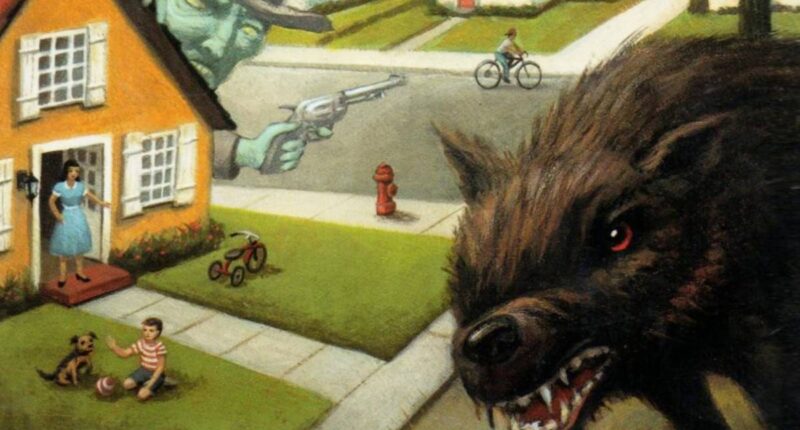Before things get too negative, it’s best to stress that Stephen King has written some of the most engaging novels of the last few decades, as most people who’ve read the likes of The Shining, The Stand, It, and 11/22/63 will likely be able to confirm. He puts out more than one novel a year, on average, and that’s before getting to all the short stories, novellas, and works of non-fiction he’s put out. It also doesn’t include books he’s co-authored, nor screenplays he’s written or co-written.
He’s prolific, in other words, and to put it mildly. But with quantity comes the potential for quality to not be consistent, as someone who writes two or three articles a day might also be able to attest to. So, yeah, King’s written some clunkers, as the following books might demonstrate. Some of these only slightly miss the mark, and might be readable in parts, while others are kind of hard to read all the way through. Most Stephen King books are worth reading, even with their flaws, but maybe save most of the following until last, if you want to be a King completionist.
10
‘Cell’ (2006)
There is a small chunk of Cell early on that’s not too bad. Like, the thing hits the ground running, and it contributes to Cell not being one of those Stephen King books that drag on for way too long, which is worth something. It’s also about something kind of preposterous, but that’s not automatically a bad thing, seeing as King has taken wild premises before and made them work surprisingly well (see 11/22/63, a time travel story about stopping the John F. Kennedy assassination).
With Cell, the basic plot is that there’s a signal spread through cell phones that turns users feral, basically to the point where they act like zombies. So, it’s a zombie sort of story with a sci-fi slant, but seems like it mostly exists just so the very anti-cell phone Stephen King can rant about cell phones and “darn kids these days and their phones” and all that. It’s a bit screechy and preachy, and half-hearted, once you get past the opening chapters and some of that initial shock/spectacle wears off.
9
‘From a Buick 8’ (2002)
Almost 20 years before From a Buick 8, Stephen King wrote another horror story that involved a strange car at its center: Christine. And, hot take, but Christine might be one of the weaker Stephen King books from the early years of his writing career, but it has more to offer than From a Buick 8, which is more experimental stylistically, and a little more surreal with its horror, but not in ways that are always effective.
It’s hard to get a handle on what’s going on in From a Buick 8 a lot of the time, and while some of that can be seen as intentional, other parts are confusing in ways that frustrate rather than unnerve. It’s a difficult book to even summarize or recommend, revolving around a car that might be a portal to some kind of alien world, with the story all intentionally fractured and presented as a series of recollections. It’s a mess, but to the book’s credit, there are other King novels that are just as messy but ultimately less compelling. More on those in a bit.
8
‘The Colorado Kid’ (2005)
If you want to see Stephen King tackle a crime/mystery story that de-emphasizes horror, you’re better off with some of his 2010s efforts, like Mr. Mercedes and Joyland (though the latter does have some horror elements). The Colorado Kid, in hindsight, feels like a warm-up for later King crime stories, being pretty slight when it comes to page-count and also not feeling very confident within the genre it belongs to.
Though the brevity of The Colorado Kid leads to it feeling a bit undercooked, it’s also short enough that it doesn’t feel like too much of a waste of one’s time.
It’s basically about a strange murder, and all the unknowns around it, with characters – and the reader, eventually – just having to sit with the uncertainty without much by way of answers. It’s a bold way to tell a crime/mystery story, but it’s not quite artful or clever enough to work as something subversive or deconstructive. It’s almost there, though, and though the brevity leads to it feeling a bit undercooked, it’s also short enough that it doesn’t feel like too much of a waste of one’s time. So, there’s that. Faint praise, sure, but it’s something.
7
‘Dreamcatcher’ (2001)
Alright, Dreamcatcher. This one’s infamous, and sometimes gets called the worst Stephen King book, and its reputation is such that after reading it, one might be pleasantly surprised to find it’s not as bad as some make it out to be. That’s not to say it’s good, but there are interesting stretches of this novel, and a sort of feverish approach taken to telling a very unconventional story about extraterrestrials impacting the lives of several men who’ve been friends since childhood.
Since Dreamcatcher is incredibly long, there’s a lot more to it than just that, and that’s where some of the problems start to emerge. This thing just goes on and on, and many of the detours feel like distractions rather than compelling little side stories (in contrast to sprawling novels like It and The Stand, which sometimes drift away from the main narrative, but have diversions that are themselves gripping to read in any event).
6
‘The Tommyknockers’ (1987)
It feels logical to talk about The Tommyknockers right after Dreamcatcher, because both have similar problems while also having comparable central premises: alien invasions, but weird and very Stephen King-esque ones. With The Tommyknockers, it’s even longer and more deranged than Dreamcatcher, which is probably the reason why it feels worth highlighting as inferior to that 21st-century Stephen King story about aliens.
At least The Tommyknockers is also sometimes fun, a bit like Dreamcatcher, but it is ridiculously long. It depends on the edition you buy, of course, but some are around 800 or even 900 pages in length, and either way, that’s at least 400 to 500 pages too many. King himself has admitted there’s a good story within The Tommyknockers, but it would need some serious editing to highlight just the stuff that works, and he’s right to make such an assessment.
5
‘Thinner’ (1984)
It might be surprising for some to see Thinner talked about negatively, particularly because it was released pretty early on in King’s career, but it’s fairly weak stuff, with it and The Tommyknockers being the two pre-1990 King books even fans of his can probably skip. Also, Thinner is technically one of his Richard Bachman books, published under that pseudonym, and actually being the one that unmasked Bachman, so to speak.
It’s a story about a man who gets cursed, and that curse makes him lose weight at a dangerous rate. That’s all there is to this one, and while the early parts of the book might be a little creepy, it gets tedious quite fast. Thinner isn’t the worst Bachman book, but it might well be the least interesting, and other ones that are sometimes considered messy – like Rage and Roadwork – are honestly worth checking out over Thinner.
4
‘Duma Key’ (2008)
Duma Key might, on paper, look like the kind of book where Stephen King gets to play the hits, but actually, he’s playing reworked versions of the hits that sound bad live, and his guitar’s out of tune. It’s about a man trying to start a new life somewhere else, stumbling into some supernatural nonsense, and meeting a bunch of deeply irritating side characters.
It’s also one of those Stephen King books where characters break out laughing at stuff that’s really not funny, and it works for It, when the characters are all kids, or it sometimes works when characters are stressed (because intense laughter can happen in certain situations), but it happens so often here. Also, the most irritating of the irritating side characters here is Wireman, who sinks the book (which was otherwise readable) the instant he shows up and laughs a lot, alongside the main character, at things that aren’t funny. At a point, Duma Key becomes painful, and it’s also way too long… again.
3
‘Bag of Bones’ (1998)
The worst period to wade through, if you’re a Stephen King fan, is from the late 1990s until the mid-to-late 2000s, as Bag of Bones and a bunch of already mentioned (oh, and soon-to-be-mentioned) books will probably indicate. He did also finish The Dark Tower series during this period, for what that’s worth, and both Wolves of the Calla and the final book in the series are interesting/engaging (albeit also divisive), but mostly… yeah, not a great decade or so.
Bag of Bones is a bit like Duma Key in the sense that all the ingredients feel like they’re there and should add up to something tasty, but the recipe was, like, absolute gibberish, and so nothing coalesces or really satisfies. It tries too hard, has a terrible wish-fulfillment kind of romance, and is too keen to recycle the sorts of narrative beats and characters that’d already been in copious King novels over the previous two decades. It stops working just a few chapters in, but then just keeps on going. It’s unrelentingly tedious stuff to actually try and finish.
2
‘The Regulators’ (1996)
There’s a Stephen King book called Desperation that came out in 1996, and it’s very messy, but also the kind of Stephen King story that has a pretty good first half followed by a not-very-good second half. It’s one of those books he seemed to know how to start, but not finish, but at least the start was good. Desperation got a companion novel released the same year, The Regulators, this time under the Richard Bachman name, and no part of it was very good.
It’s got people with the same names as the characters in Desperation, and maybe some other similarities narratively and thematically, but it’s just so scattershot. It’s like From a Buick 8 in that it’s a nightmare to summarize, but it’s also barely ever fun and also longer overall, so it’s worse. It’s really not worth checking out, and there’s good reason why it remains obscure and also not adapted to film or TV, as of the time of writing.
1
‘Lisey’s Story’ (2006)
Before, Stephen King was praised for having a view about The Tommyknockers that made a good deal of sense, but it’s harder to agree with his view that Lisey’s Story is the best thing he’s ever written. Well, okay, it being his personal favorite is a little easier to grapple with, since it’s a very personal book that he wrote when reflecting on his own mortality, and what his passing might mean to his wife of 50+ years, fellow author Tabitha King, but… okay. Okay.
It’s the sort of thing that just should’ve stayed unpublished. Maybe you can appreciate the sentiment, but Lisey’s Story is the most cloying, cringe-inducing (not using that word in a Gen-Z way; it’s genuinely cringe-inducing), and overly sappy thing you might well ever read. It drones on and on, feels kind of offensive in the way it explores mental illness, and continually insists on using all these frustrating made-up words that are supposed to demonstrate the bond between the book’s main character and her recently deceased husband (who’s a big presence here, thanks to flashbacks), but it’s too much. If it had been another writer who hadn’t been successful for 30+ years, an editor would’ve told them Lisey’s Story was too much. But King gets away with it, and you too can get away with something if you want: not reading it. It’s just not worth it. It doesn’t matter how much you like Stephen King’s other books. Just re-read one of them and stay away from this Story about Lisey.



















